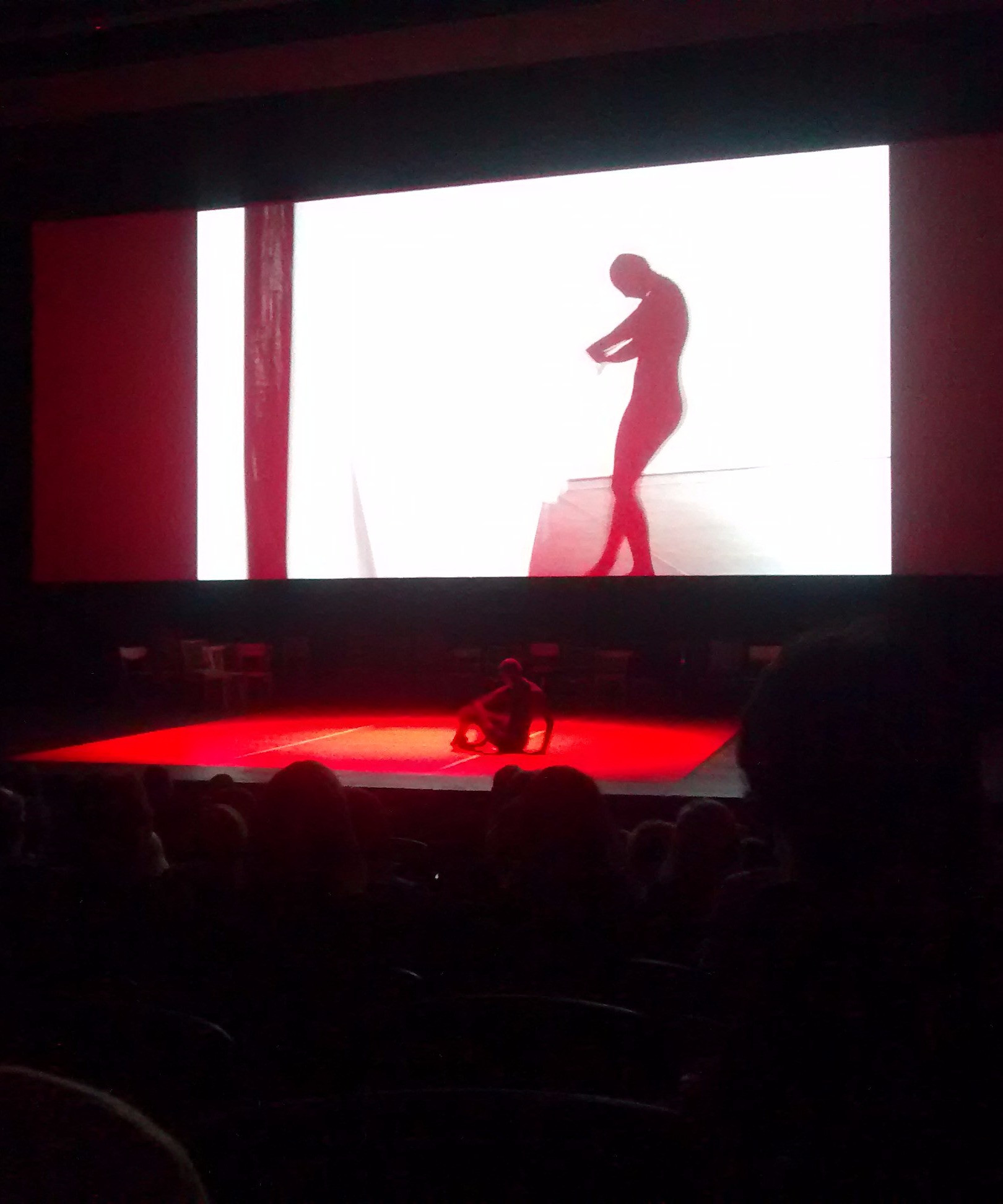
As reported earlier, the show Sea
Lavender had been invited for a performance on the 900-seat main stage of
the Volkstheater in Vienna. Unfortunately, Éva Fahidi fell ill one day before
the scheduled date and was temporarily hospitalized, so the show as planned had
to be cancelled. However, even though Sea
Lavender in its original form was for now taken off the bill, the staff of
The Symptoms did their best to conjure up the spirit of the work at the same
theater in Vienna. While Réka Szabó and the team of Campfilm spent the day and
night before the date compiling four 10-minute segments from Crying Will Get You Nowhere, a
work-in-progress documentary film about the rehearsals of Sea Lavender, the manager of the company recorded a video message
with Éva at the hospital. The next day, only two hours after first coming on
the set, a most extraordinary performance began, with live dance fragments
performed by Emese Cuhorka and bits of dialogue interspersed with screening
segments. Aided by the show’s regular interpreter Golda Fischer, Volkstheater
dramaturgist Roland Kolberg interviewed Réka Szabó and Emese Cuhorka about the
origins of the piece and the documentary now being finalized. Toward the end of
the evening, a live phone call with Éva Fahidi drew loud ovation from the
audience. Subsequently, we received a tide of positive feedback from Austrian
and Hungarian members in the audience. This has reinforced our decision that
this one-off production, created as it was in an emergency on the spur of the
moment, is worthy of being staged in its own right.
I was there in the
stalls in Vienna where the documentary was screened instead of the cancelled
performance. In my first-row seat, I underwent an experience or shock, or I
don’t know what to call it, that was more powerful than anything I had ever
felt before. […] It was as if this whole event had been the real thing instead
of some kind of substitute, which it really was—something put together by
someone, a director, by painstaking work. I hate using hyperbole, but this
experience turned me inside out. I could not stop shedding tears, even as I
laughed till the end!
—
Dóra Halas, Music Director of Soharóza
I attended the
performance in Vienna with a friend. I can say that both of us were deeply
moved by the production, even if not everything worked out as planned. I
congratulate the company on the professional manner in which they saved the
night. I think it was a huge success! It was great to see Éva in her video
message, and when they called her on the phone, it was a very poignant moment
for me. We really liked the snippets of the documentary. It was great to see
how much work had gone into this, and to learn about Éva’s life and evolving
character. And when Emese “floated” onto
the stage and began to dance, she cast a spell on the entire audience. Excellent
job, really! We can’t wait to see the whole film!
—
Georgina Nagy, Collegium Hungaricum,
Vienna
On Sunday after this unusual show, Réka Szabó attended a round-table
discussion hosted by the Wiesenthal Institute, Vienna, where she talked with
the historian Aly Götz, dance theorist Nicole Haitzinger, and Éva Kovács on
behalf of the Institute.

